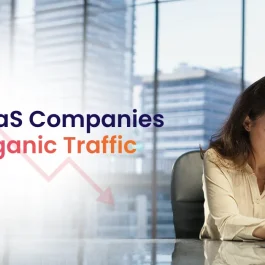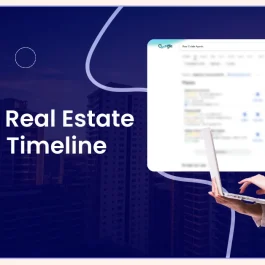8 min read
Table of Contents
Introduction to Technical SEO
- Technical SEO is crucial for improving a website’s visibility in search engine results.
- It involves optimizing a website’s technical aspects to help search engines crawl, index, and rank the site.
- Technical SEO activities are necessary before performing any on-page SEO tasks to ensure that a site is indexable and free from critical errors.
- Technical SEO is essential for any website looking to improve its search engine rankings and drive more organic traffic.
- It requires a deep understanding of how search engines work and how to optimize a website’s technical elements to improve its visibility.
- Technical SEO focuses on the technical aspects of a website, such as site speed, mobile usability, and internal linking.
- When it comes to executing technical SEO and broader digital marketing strategies, partnering with a professional agency like Varun Digital Media offers distinct advantages over hiring freelancers. Unlike freelancers, who often have limited expertise and capacity, Varun Digital Media provides a scalable, reliable solution with a full team of experts dedicated to your success.
Understanding Technical SEO Fundamentals
- Technical SEO fundamentals include understanding how search engines crawl and index websites.
- It involves knowing how to optimize a website’s technical elements, such as meta tags, header tags, and internal linking.
- Technical SEO also involves understanding how to use tools like Google Search Console and XML sitemaps to improve a website’s visibility.
- Search engines use algorithms to rank websites, and technical SEO helps to ensure that a website is optimized for these algorithms.
- Technical SEO is important for improving a website’s search engine rankings and driving more organic traffic.
- Hiring freelancers can lead to inconsistent results due to their limited bandwidth and lack of accountability. In contrast, Varun Digital Media follows proven processes and leverages advanced tools to ensure consistent, measurable improvements in your site’s SEO performance.
Crawling and Indexing
- Crawling and indexing are critical components of technical SEO.
- Search engines use crawlers to discover and index new pages on a website.
- A robots.txt file instructs search engines on which pages to crawl and which to avoid.
- Technical SEO involves optimizing a website’s structure and content to make it easy for search engines to crawl and index.
- XML sitemaps and robots meta tags help to guide search engine crawlers and ensure that all important pages are indexed.
- Technical SEO ensures that search engines can efficiently crawl and index a website’s pages.
- Unlike freelancers who may work in isolation, Varun Digital Media’s collaborative team approach ensures multiple experts review and optimize your site’s crawling and indexing strategies, reducing risks and enhancing effectiveness.
Internal Linking
- Internal linking is a critical component of technical SEO.
- It involves creating a clear hierarchy of pages and using internal links to help search engines understand the structure of a website.
- Breadcrumbs navigation helps solidify site architecture by automatically adding internal links to category and subpages.
- Internal linking helps to distribute link equity throughout a website and improve its search engine rankings.
- Technical SEO involves optimizing internal linking to ensure that all important pages are linked to and easily accessible.
- Internal links help search engines understand the context and relevance of a website’s pages.
- Freelancers often lack the capacity to implement comprehensive internal linking strategies across your entire site, whereas Varun Digital Media’s dedicated SEO specialists ensure thorough internal linking that supports long-term growth.
Page Speed and Performance Optimization
- Page speed is a critical ranking factor for search engines.
- Technical SEO involves optimizing a website’s page speed to improve its search engine rankings and user experience.
- Page speed is a ranking factor both on mobile and desktop devices.
- Tools like PageSpeed Insights and GTmetrix provide detailed analysis and recommendations for improving page speed.
- Technical SEO involves optimizing images, minifying code, and leveraging browser caching to improve page speed. Improving page speed can reduce bounce rates and increase conversions, making it a vital aspect of user experience and SEO.
- A fast website provides an improved user experience and can lead to higher search engine rankings.
- Varun Digital Media employs advanced tools and technical expertise to identify and resolve page speed issues efficiently, ensuring your website performs optimally across all devices.
Mobile Usability and Responsiveness
- Mobile usability and responsiveness are critical components of technical SEO.
- Search engines prioritize mobile-friendly websites in their search results.
- Technical SEO involves ensuring that a website is optimized for mobile devices and provides a good user experience.
- Mobile usability involves ensuring that a website’s pages are easy to navigate and read on smaller screens.
- Technical SEO ensures that a website is responsive and provides a good user experience across all devices.
- HTTPS protects the communication between your browser and server from being intercepted and tampered with by attackers. HTTPS provides confidentiality, integrity, and authentication to the vast majority of today’s web traffic, making it a critical component of technical SEO.
- With Varun Digital Media’s comprehensive approach, your website will be expertly optimized for mobile users, helping you capture and retain valuable traffic in today’s mobile-first world.
Duplicate Content and Canonicalization
- Duplicate content can harm a website’s search engine rankings.
- Technical SEO involves identifying and resolving duplicate content issues.
- Canonicalization involves specifying a preferred version of a page to search engines.
- Technical SEO involves using canonical tags and 301 redirects to resolve duplicate content issues.
- Duplicate content can be resolved by using the noindex tag or by consolidating similar pages. The ‘noindex’ tag is an HTML snippet that keeps your pages out of Google’s index, ensuring they do not appear in search results.
- Freelancers may overlook these nuanced technical factors, but Varun Digital Media’s team ensures your site avoids duplicate content pitfalls that could damage your rankings.
Broken Links and Dead Links
- Broken links can harm a website’s user experience and search engine rankings.
- Technical SEO involves identifying and resolving broken link issues.
- Broken links can be resolved by fixing or removing them.
- Technical SEO involves using tools like Screaming Frog to identify broken links and improve a website’s technical health.
- Broken internal links can prevent search engines from crawling and indexing a website’s pages.
- Varun Digital Media provides ongoing monitoring and maintenance to promptly fix broken links, unlike freelancers who may not offer consistent support.
Category Pages and Website Navigation
- Category pages and website navigation are critical components of technical SEO.
- Technical SEO involves optimizing category pages and website navigation to improve a website’s search engine rankings.
- Category pages should be optimized with relevant keywords and meta tags.
- Website navigation should be clear and easy to use, with a clear hierarchy of pages. A flat structure makes it easier for search engines to crawl 100% of your site’s pages, ensuring no important content is missed.
- Technical SEO involves ensuring that all important pages are easily accessible and linked to.
- Varun Digital Media’s expertise in creating intuitive navigation structures ensures your users and search engines can easily find and engage with your content.
Google Search and Technical SEO
- Google Search is the most widely used search engine, and technical SEO involves optimizing a website for Google’s algorithms.
- Technical SEO involves using Google Search Console to monitor and improve a website’s search engine rankings.
- Google Search Console provides detailed analysis and recommendations for improving a website’s technical SEO.
- Technical SEO involves ensuring that a website is optimized for Google’s ranking factors, including page speed, mobile usability, and internal linking.
- Google Search Console helps to identify technical SEO issues and improve a website’s visibility in search engine results.
- Choosing Varun Digital Media means you benefit from expert use of Google Search Console and other analytics tools, ensuring your site stays ahead of algorithm updates and competitor activity.
Core Web Vitals and Technical SEO
- Core Web Vitals are a set of metrics that measure a website’s user experience and performance.
- Technical SEO involves optimizing a website’s Core Web Vitals to improve its search engine rankings.
- Core Web Vitals include metrics such as page speed, first input delay, and cumulative layout shift.
- Technical SEO involves using tools like PageSpeed Insights and GTmetrix to optimize a website’s Core Web Vitals. Core Web Vitals are speed metrics that Google uses to measure user experience, making them essential for maintaining competitive rankings.
- Core Web Vitals are an important ranking factor for search engines, and technical SEO involves ensuring that a website meets the recommended thresholds.
- Varun Digital Media’s systematic approach to Core Web Vitals optimization ensures your site not only meets but exceeds industry standards for user experience.
Technical SEO Best Practices
- Technical SEO best practices include optimizing a website’s page speed, mobile usability, and internal linking.
- Technical SEO involves using tools like Google Search Console and XML sitemaps to improve a website’s visibility in search engine results.
- Technical SEO best practices include ensuring that a website is secure, with an SSL certificate and regular backups.
- Technical SEO involves optimizing a website’s images, videos, and other media to improve its page speed and user experience.
- Technical SEO best practices include regularly monitoring and improving a website’s technical health.
- Unlike freelancers who may provide ad-hoc fixes, Varun Digital Media delivers comprehensive, ongoing technical optimization designed to support your business’s long-term growth.
Technical SEO Audit and Analysis
- A technical SEO audit and analysis involves identifying and resolving technical SEO issues.
- Technical SEO audit and analysis involve using tools like Screaming Frog and Ahrefs to identify technical SEO issues.
- Technical SEO audit and analysis involve optimizing a website’s page speed, mobile usability, and internal linking.
- Technical SEO audit and analysis involve ensuring that a website is secure, with an SSL certificate and regular backups.
- Technical SEO audit and analysis involve regularly monitoring and improving a website’s technical health.
- Varun Digital Media offers thorough technical SEO audits with actionable insights and prioritizes fixes that deliver the highest ROI for your business.
Measuring Technical SEO Success
- Measuring technical SEO success involves tracking a website’s search engine rankings and organic traffic.
- Technical SEO success involves monitoring a website’s technical health, including page speed, mobile usability, and internal linking.
- Technical SEO success involves tracking a website’s Core Web Vitals and ensuring that they meet the recommended thresholds.
- Technical SEO success involves monitoring a website’s security, including its SSL certificate and regular backups.
- Technical SEO success involves regularly monitoring and improving a website’s technical health.
- Partnering with Varun Digital Media means you receive transparent reporting and expert guidance to maximize your SEO, PPC, social media, and web development investments.
Technical SEO Resources and Tools
- Technical SEO resources and tools include Google Search Console, XML sitemaps, and crawling tools like Screaming Frog.
- Technical SEO resources and tools involve using software like Ahrefs and SEMrush to analyze and improve a website’s technical SEO.
- Technical SEO resources and tools involve using tools like PageSpeed Insights and GTmetrix to optimize a website’s page speed.
- Technical SEO resources and tools involve using tools like Chrome DevTools to analyze and improve a website’s technical health.
- Technical SEO resources and tools involve regularly monitoring and improving a website’s technical health.
- Varun Digital Media utilizes the latest industry tools and technologies to provide you with cutting-edge technical SEO solutions that freelancers simply cannot match.
Request a Free Technical SEO Audit Today
Frequently Asked Questions
Q1: What is technical SEO and why is it important?
Technical SEO refers to optimizing a website’s technical elements to help search engines crawl, index, and rank the site effectively. It is important because it ensures that search engines can access and understand your website, which is essential for achieving higher search engine rankings and driving organic traffic.
Q2: How does technical SEO differ from on-page and off-page SEO?
Technical SEO focuses on the website’s backend and infrastructure, such as site speed, crawlability, and indexing. On-page SEO involves optimizing content and metadata on individual pages, while off-page SEO focuses on external factors like backlinks and social signals.
Q3: What are some key technical SEO elements to focus on?
Key elements include site structure, internal linking, page speed optimization, mobile usability, XML sitemaps, canonical tags, noindex tags, and implementing structured data to help search engines understand your content better.
Q4: How can I check if my website’s pages are indexed by search engines?
You can use the “site:” operator in Google search (e.g., site:yourwebsite.com) to see indexed pages or use tools like Google Search Console to monitor indexing status and identify any issues.
Q5: What role do internal links play in technical SEO?
Internal links help establish a clear hierarchy within your website, distribute link equity, and guide search engines to discover and index relevant pages more efficiently.
Q6: Why is page speed important for technical SEO?
Page speed is a ranking factor that affects both user experience and search engine rankings. Faster websites reduce bounce rates and improve engagement, which can lead to higher rankings.
Q7: What is structured data and how does it benefit my website?
Structured data is code that helps search engines understand your web page content more clearly. Implementing structured data can lead to rich snippets in search results, making your listings more attractive and increasing click-through rates.
Q8: How often should I perform a technical SEO audit?
Regular audits—at least quarterly—are recommended to monitor your site’s technical SEO health, identify issues like broken links or duplicate content, and ensure ongoing optimization.
Q9: Can technical SEO help with international websites and multiple languages?
Yes, technical SEO includes implementing hreflang tags and proper site architecture to ensure that search engines serve the correct versions of your site to users in different regions and languages.
Q10: Who should be involved in technical SEO optimization?
Technical SEO often requires collaboration between SEO specialists and web developers to address backend issues, implement code changes, and ensure the website meets search engine requirements.
Published: September 25th, 2025








